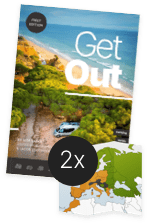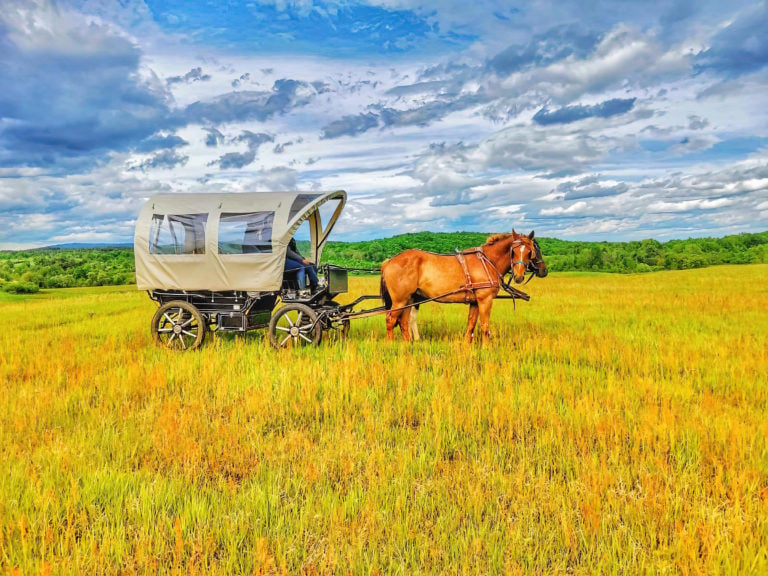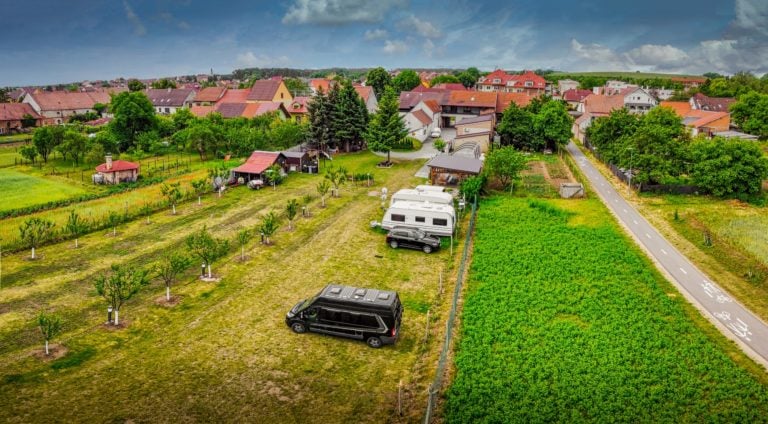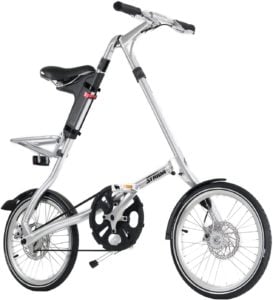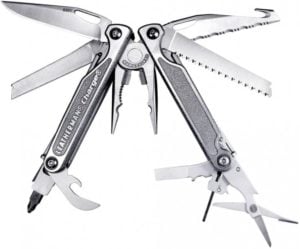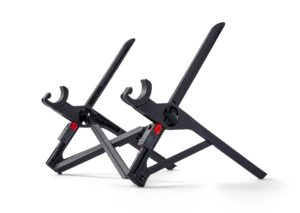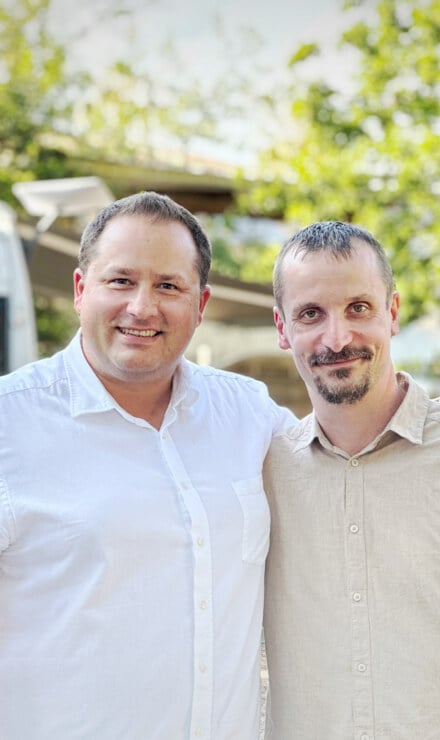
With children around the world
How can you earn enough money without missing out your children's growing up? Modern nomads have a perfect recipe for the dilemma of many today's parents: they travel the world together.
It's nine o'clock in the morning and the air in the campsite near the Croatian Split is starting to shimmer from heat and the sound of cicadas. I shut down my computer after three hours of working, switch on the coffee maker and go to the caravan to greet the waking kids. First we have breakfast together, then we go to the playground and to swim in the sea. After lunch, we repeat the routine a few more times and when the temperature drops in the evening, I sit back down to my laptop.
I manage emails from my employees and finish some web and banner graphics side by side with my wife, who's drinking coffee, while our younger daughter is sleeping in the stroller and the older one is splashing in the bathtube only two meters away from us. Of course, there is no way I could compare it to the days at home when I go to the office in the morning and come back home at night. I do less work in here but I get to spend the whole day with my wife and kids, who need me the most these days. That is the main benefit of a digital nomad family, as I call our lifestyle. My name is Víťa (vee-ta), I am thirty-one years old and I am a web designer and co-owner of the stock photo site Pixmac.
I got the idea of getting a caravan and move part of our lives on the road in the autumn of 2011. I wanted to benefit from the fact that I can work remotely for most of the time, my wife is on maternity leave and our daughters don't have to attend school or kindergarten yet. I needed only few months to make this plot-against-the-ordinary-life happen. The next spring there was already a used caravan standing in front of our house and in the June we started out our first caravan journey abroad.
Since we didn't find any flaws on the first summer tryout trip, we've decided to spend more time on the road in the future. We'd love to spend the winter in the southern Europe. Half of the price for the month worth of camping would be spent for the heating back at home anyway.
What really matters
While in the Czech Republic, my homeland, I am definitely one of the first. I know that else in the world it is quite common to travel with the kids. People share their stories on websites like Familiesontheroad.com or Vagabondfamily.org. Most of them are families on the road, looking for a slower and better life with more time for their loved ones, or escaping from the economic crises. Back in 2009, Mike Elgan, famous American journalist and modern technology expert, adviced people to travel around the world instead of worrying about the economic recession. Many Americans lost their jobs our houses because of the crisis and according to Elgan, traveling is a cure for both. Companies are saving money so they are dismissing employees and hiring freelance workers. For people who work online it can be more convenient to settle with American salary in the cheaper parts of the world.
A typical Czech digital nomad used to be a childless freelance professional who travels and works simultaneously to enjoy it more. However, nomadism is a peculiar lifestyle for overseas families. It is often associated with anti-consumerism, ecological thinking or so-called minimalism, whose basic idea is that the less we have, the more we can devote to what really matters.
“We sold our beloved house and little vinyard and decided to go out into the world while we're still strong enough to enjoy it,“ wrote a family from Californian Santa Cruz on their website in 2006, using pseudonyms Jeanne d'Arc, DaVinci and Mozart in order to protect their privacy. Since then, they have traveled 44 countries of five continents in the caravan. They are constantly on the move, although rather slow: “We drive for maybe three hours and then we stop for a fortnight or a month,” said the sixty-year-old Joan of Arc in a skype call from Malaysian Penang. They too decided to set off on the road mainly to enjoy life and each other better – all the more so since Mozart is in fact a skinny blonde girl they wished for and had later in life. They took half of the money from the sale of the house with them and invested the other half. Both of this allowed them to be on the road for the past seven years. After all, they spend much less money then at home. “We fit into the budget of $ 23 per person per day,” says Jeanne d'Arc.
Swimming with sharks on the island of Bora Bora, riding a camel across the Sahara, surfing in Hawaii, watching the ballet in the Sydney Opera House and a Shakespeare play in the London Globe, celebrating the Chinese New Year's Eve in Asia, tasting reindeer meat in a Swedish cabin, hiking in the Norwegian fjords. That's just a fraction of what Mozart and her parents have experienced in the past seven years. But plenty of this amazing experience is naturally balanced by a reasonable dose of risk and problems.
For me personally, the idea of my kid getting an inflammation of the middle ear somewhere in the godforsaken village in the middle of Mexico is what's been keeping me from traveling outside Europe. In addition to a good insurance, I see the solution in contact with the locals who can advise a good doctor if necessary. For similar reasons, childless digital nomads connect to Couchsurfing.com – a server where you can find a free place to sleep.
The Internet is an essential help for modern digital nomads, or even more – traveling would not be possible without it. Or it would look completely different at very least. Not only it is the important communication link to home, but most of the digital nomads need it to earn money. Also those who didn't plan it at first can benefit from it. For example Jeanne and Da Vinci didn't use to have much experience with Internet, they first have created a website only for their friends and for the sake of keeping the memories. However, the interest of their readers forced them to find their way around modern technologies rather fast. Nowadays, apart from their website www.soultravelers3.com they also have a Facebook page and a Twitter profile, and their videos on YouTube have millions of views, which is an important part of their income. Most of the other nomad families do the same – they travel, share their experiences, and through the ads on their sites they get the money for traveling.
The school of life
In addition to finances, medical health care or the raised eyebrows of their neighbors, there is also another matter nomad families have to deal with: the education of their children. School attendance is compulsory in the Czech Republic, home-schooling is only possible for children in the elementary school and the rules are relatively strict – parent who is responsible for the education of the child have to at least had graduated highschool and the child must go to school for examination every six months. In the USA, homeschooling has a long tradition (family nomads like to mention that several US presidents or Thomas Alva Edison also went through it) and since 1993 it has almost no restrictions. In some states, parents are not even required to notify anyone that their child is not attending school.
The most common objection of the opponents of the homeschooling is the lack of social bonds with their peers. For children of nomads who are constantly traveling it applies twice as much. But there is a solution for them. “That's why we spend each winter in the same village in Andalusia in the south of Spain, where Mozart goes to school. Each year we also come back to Malaysian Penang – also there she has classmates and friends, ” says the nomad mother.
Jeanne can't speak well enough about everything her daughter gains from the travels. After all, it was one of the main reasons for her and her husband to get on the road. In addition to English, Mozart speaks fluent Spanish and Mandarin Chinese and knows the basics of several other languages. She manages to develop other skills on the go: she takes Skype piano lessons from her former Chicago teacher, and she's taught how to play violin the same way by Russion teacher their parents know from Twitter. The most important stuff comes from the journey itself: the understading of other cultures, the ability to solve problems, better insight into history, increasing curiosity. Also the family have more time to talk than they would have at home. “Probably the best thing she's learned is the love for the planet and all the people who live here. She's learned not to dwell on things and to love freedom. Everything she ever saw only increased her interest in others. I think it's the best training for a 21st century global citizen,” her mother concludes.
I've also learned a lot on my journey, although it was only the tryout for now. The caravan forces you to slow down your life but also to intensify it at the same time. At a maximum speed of 80 kilometers per hour and the average speed of 50, you do not plan anything for hours, let alone for minutes. You plan for days and weeks. You can also enjoy everything better. We don't drive on the highways, but on the old roads, we have seen Croatian inland and met more local people. I also have the same approach to my career: I would like to go far. But not without respecting the speed limit.
The original article in the Czech language is at:
rodicevitani.cz/nezarazene/s-detmi-do-sveta
